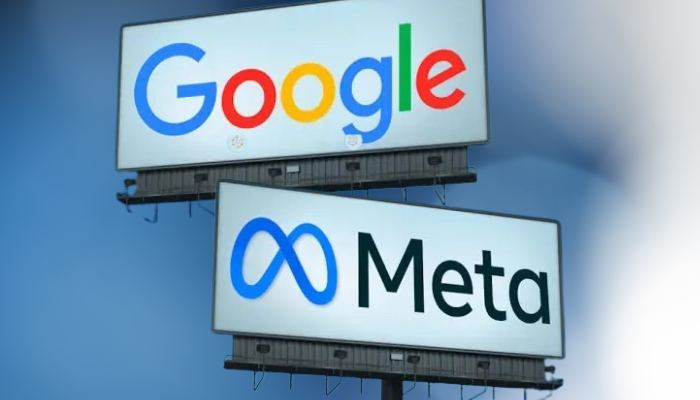Meta and Google accused of limiting reproductive health information
3 min read
A report alleges that posts about abortion and contraception have been removed, while misinformation on the feeds of social media users in Africa, Latin America, and Asia has not been addressed
Meta and Google are accused in a new report of obstructing information on abortion and reproductive healthcare across Africa, Latin America, and Asia. MSI Reproductive Choices (formerly Marie Stopes International) and the Center for Countering Digital Hate claim the platforms are restricting local abortion providers from advertising but failing to tackle misinformation that undermines public access to reproductive healthcare. Meta said it will review the report’s findings. MSI, which provides contraception and abortion services in 37 countries, said its adverts containing information on sexual health, including cancer advice, had been rejected or deleted by the platform. Phrases such as “pregnancy options” have been flagged as falling foul of Google community guidelines, MSI Ghana claims. MSI Vietnam said Facebook adverts promoting information about IUDs (intrauterine devices) and other contraceptive methods were removed.
Whitney Chinogwenya, MSI’s global marketing manager, expressed concern, stating, “In Africa, Facebook is the primary source of reproductive health information for many women. We have been expanding our digital operations to meet this demand, but we are encountering challenges in presenting reliable information to women in need. We cover a wide range of topics, from menopause to menstruation, but we consistently find that our content is censored.”
She mentioned that Meta viewed reproductive health content through “an American lens,” applying socially conservative US values to posts published in countries with progressive policies such as South Africa, where abortion on request is legal in the first 20 weeks of pregnancy. MSI Mexico stated that its Facebook posts advertising legal abortion services have been deleted by the platform. Abortion was decriminalized in September and is available on request in Mexico City and 11 other states. Chinogwenya stated that Meta is not doing enough to combat anti-abortion misinformation, accepting adverts from organizations that claim medical abortions lead to “fatal vaginal bleeding” or that upload gestational images of advanced pregnancies claiming they are from earlier fetal stages in an effort to stigmatize the procedure.
The report, released on Wednesday, uncovered counterfeit MSI pages on Facebook, including five in Kenya. MSI stated that it attempted to contact Meta to request the removal of these pages but faced difficulties reaching a company representative. “Some of the pages belong to informal abortion providers seeking to capitalize on MSI’s reputation,” Chinogwenya explained. “Others are likely run by pregnancy crisis centers, which masquerade as abortion clinics to dissuade and prevent women from terminating their pregnancy. However, there are also numerous scammers. Women often visit our clinics after being misled into purchasing anything from aspirin to laxatives by online scammers.” Additionally, the report highlighted a disinformation campaign targeting MSI clinics in Ghana on the Meta-owned messaging platform WhatsApp.
“Implementing a fact-checking system for reproductive health information and services would be one of the most beneficial actions Meta could take,” said Esi Asare Prah, the advocacy and donor relations manager at MSI Ghana, where abortion is permitted in restricted circumstances. She expressed hope that the report would prompt digital platforms to be more aware of their responsibilities towards users in the global south. “Whether it involves content promoting health misinformation or directing women and girls towards unsafe services, there are real users being disadvantaged in the end,” she stated.
The report was compiled through correspondence and interviews with MSI’s local teams in Ghana, Kenya, Mexico, Nepal, Nigeria, and Vietnam, as well as evidence gathered from Meta’s Ad Library.
A spokesperson for Meta, Ryan Daniels, stated, “We allow posts and ads promoting healthcare services, as well as discussion and debate around them. Content related to reproductive health must adhere to our rules, including those regarding prescription drugs and misinformation. Ads promoting reproductive health products or services may only be targeted to individuals aged 18 and above.”
“We prohibit ads containing misinformation or that mislead people about a business’s services, and we will examine the content of this report,” a Meta spokesperson stated. A Google spokesperson commented, “This report does not provide any examples of policy-violating content on Google’s platform or instances of inconsistent enforcement.”
Regarding ads referencing “pregnancy options” in Ghana, the spokesperson clarified that they are not prohibited from running. “If these ads were restricted, it was likely due to our longstanding policies against targeting individuals based on sensitive health categories, including pregnancy.”



